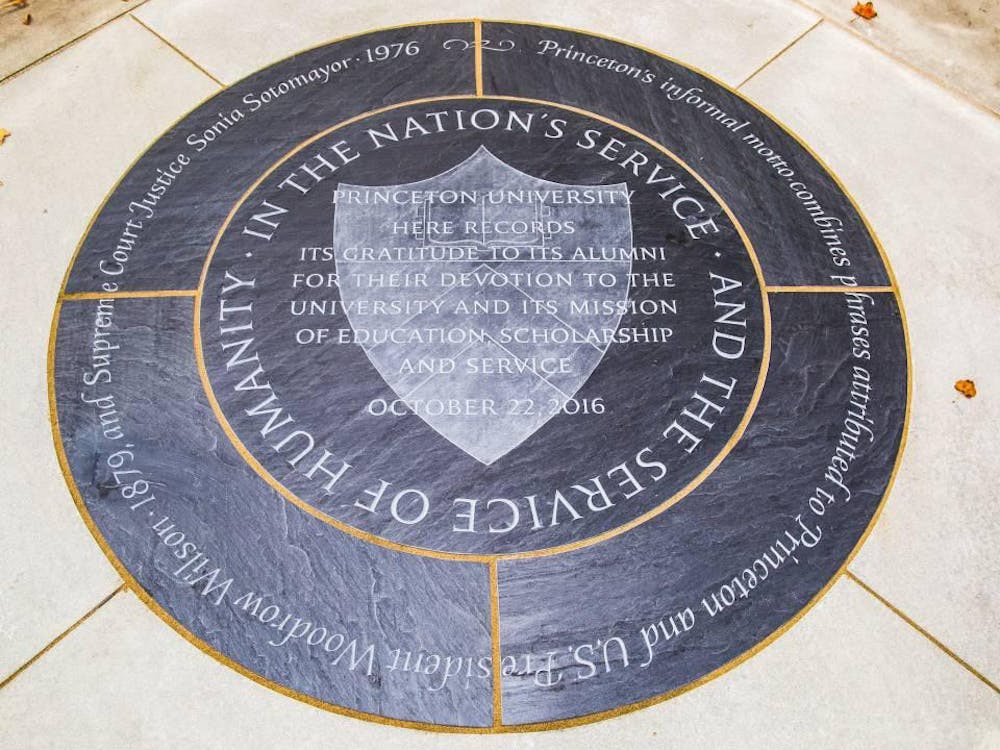Having just re-entered the world of academia after a year off from Princeton, I reckon now is a good time to think more deeply about what I’m getting from my formal education. It’s been 12 months since I’ve last had to strain my ears to comprehend a waffling professor or stare with a sense of impending doom at the first of 250 pages of a reading assignment. Yet, in this past year of struggling with physical health issues and existential crises, I’ve learned more than I could have in any classroom.
Before now, I never really questioned the fact that in order to excel in the academic world you must develop an incredible ability to focus upon even the most long-winded writers, resisting the urge to thump your skull hopelessly on the desk. Wisdom, it always seemed, came hand in hand with both bewilderment and boredom, and if you persevered in wading through the murky swamps of theories and thesis statements, you would reach some kind of enlightened state. It’s the conclusion society generally leads us to believe, what with the reverence and respect given to higher education.
But there is, though it isn’t often openly recognized, a crucial distinction between knowledge of the academic kind and wisdom. Michel de Montaigne, who was relatively down to earth for a philosopher (his favorite topics ranged from the meaning of life to his bowel movements, sexual failures and other bodily delights), recognized that “Wisdom does not require a specialized vocabulary or syntax.” He had little patience with academics’ obscure phrases and theories unless they were relevant to helping him on his own life’s journey. This quote of his about wisdom, which now hangs on my wall, comes from a larger discussion of the “absurdity of education” — a topic I don’t think is debated nearly enough these days, especially by those most intimately engaged in it.
Wisdom is the distinction between knowing how to conjugate a Latin verb and understanding, both intellectually and emotionally, what your limitations are, or how you can find contentment within yourself. David Brooks touched upon this issue in his piece “The Organization Kid” a decade ago, when he analyzed the cultural, economic and psychological dimensions of Princeton students, and concluded that the nature of their education was shifting away from a conscious cultivation of deeper emotional values in favor of purely academic standards.
Wisdom is a way of living and being, not just knowing; it’s where our faculties of reason and emotion overlap. We are not just intellectual creatures — we are also overflowing with feelings that we can neither control nor explain. To neglect our emotional dimension — the key part of us that makes us human — is a mistake, and the root cause of many forms of mental illness. And the basic premise of the academic system at schools like Princeton, I believe, overrates the inherent power of reason, organization and control at the expense of emotional development. Getting an A on a paper is certainly no indication of wisdom and should not be treated as such.
This is the problem I have with U.S. liberal arts colleges, institutions that pose as places where you will presumably, in four years, become wise and ready to tackle the world. I’m not sure if any institution could ever actively “teach” the emotional skills I’m talking about, as they aren’t explicitly defined or measurable. Colleges may only ever hope to act as a canvas on which the messiness of 20-something life unfolds, with deeper spiritual learning experiences happening on a sporadic, informal basis. But perhaps institutions could do more to develop emotional awareness in their students. Montaigne suggested issuing “wisdom exams” — a seemingly ridiculous thought that may actually be worth some consideration.
There is a fundamental disconnect between the system’s constant assessment and drive for perfection, and the deeper growth it claims to foster. I’m not knocking every aspect of formal education — who could fault dogged work ethic, orderly thinking, analytical skills or dedication to excellence? But I do think that a clearer awareness of what wisdom truly is (and is not) could help us to reorient the place of formal education in our lives, and lessen its increasingly significant emotional toll. We need to be balanced creatures — to integrate our right- and left-brained selves, to maximize our full potential. Unfortunately, just signing up for two art classes and two math courses doesn’t do the trick if it’s merely a pretense of balance.
Now as I return to Princeton, balance is the word I remind myself of every day: balance between doing and being, between socializing and spending time alone, between looking inward and looking outward. I want to remind myself to inhabit that wonderful little space of overlap between reason and emotion, even when life tries to push me one way or another. Pure knowledge without emotional insight is, in itself, a form of ignorance. And I like to think that after so many years in school, my impulse to banish ignorance still remains strong.
Lauren Davis is a sophomore from North Hampton, NH. She can be reached at lhdavis@princeton.edu.








